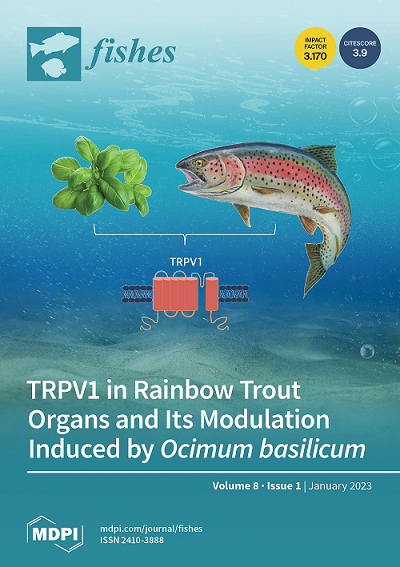Rockfish Species Trends in Puget Sound, Washington, USA, 2009–2023
IF 2.1
3区 农林科学
Q2 FISHERIES
引用次数: 0
Abstract
Rockfishes (Sebastes spp.) are a long-lived, understudied, multi-species fish assemblage in inland Washington (USA) waters. Driven by large-scale fishery removals in the 1970s, their numbers declined and have yet to recover, perhaps due to slow maturation and rare recruitment success. Since then, rockfish fishing restrictions have increased within Puget Sound, culminating in a 2010 total ban. Here, we analyze rockfish community trends (abundance and Shannon Diversity) within Puget Sound from 2009 to 2023. Our dataset includes 157 recorded dive transects from nine rocky or artificial reef habitats at depths 5–24 m throughout four Puget Sound basins: Admiralty Inlet (2 sites), Central Puget Sound (4 sites), Hood Canal (2 sites), and South Puget Sound (1 site). Significant differences in community species composition between basins were observed; we noted more Black (S. melanops), Yellowtail (S. flavidus), and Puget Sound (S. emphaeus) rockfish and fewer Brown rockfish (S. auriculatus) at sites in Admiralty Inlet vs. Central Puget Sound. Adult rockfish counts and Shannon Diversity varied seasonally, with higher rockfish counts and diversity indices in summer/autumn vs. winter/spring. Notably, we observed that total adult rockfish count per survey tended downward over time, driven partly by significant downward trends in Hood Canal Copper rockfish (S. caurinus) counts. We recommend continued monitoring and additional investigation into what factors besides fishing may be driving the trends reported here.2009-2023年美国华盛顿州普吉特湾岩鱼种类趋势
岩鱼(sebases spp.)是一种寿命长,研究不足的多物种鱼类组合在内陆华盛顿(美国)水域。由于1970年代大规模的渔业清除,它们的数量下降,至今尚未恢复,也许是由于成熟缓慢和极少的征聘成功。从那以后,普吉特海湾的岩鱼捕捞限制增加,最终在2010年全面禁止。本文分析了2009 - 2023年普吉特海湾岩鱼群落的变化趋势(丰度和Shannon多样性)。我们的数据集包括157个记录的潜水断面,来自四个普吉特海湾盆地的9个岩石或人工珊瑚礁栖息地,深度为5-24米:Admiralty Inlet(2个地点),Central Puget Sound(4个地点),Hood Canal(2个地点)和South Puget Sound(1个地点)。不同流域间群落物种组成差异显著;与普吉特海湾中部相比,海军部湾的黑岩鱼(S. melanops)、黄尾岩鱼(S. flavidus)和普吉特海湾的黄尾岩鱼(S. emphaeus)较多,褐岩鱼(S. auriculatus)较少。成年岩鱼数量和Shannon多样性随季节变化而变化,夏/秋季的岩鱼数量和多样性指数高于冬/春季。值得注意的是,我们观察到每次调查的成年岩鱼总数随着时间的推移呈下降趋势,部分原因是胡德运河铜岩鱼(S. caurinus)数量显著下降。我们建议继续进行监测,并进一步调查除捕鱼之外的哪些因素可能导致这里报告的趋势。
本文章由计算机程序翻译,如有差异,请以英文原文为准。
求助全文
约1分钟内获得全文
求助全文

 求助内容:
求助内容: 应助结果提醒方式:
应助结果提醒方式:


